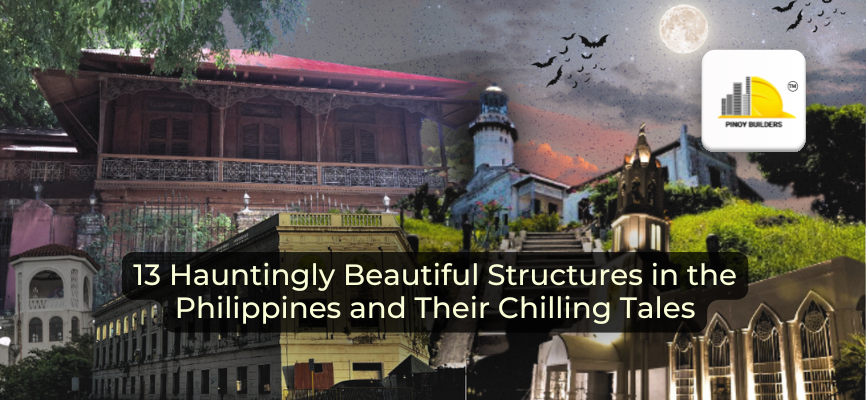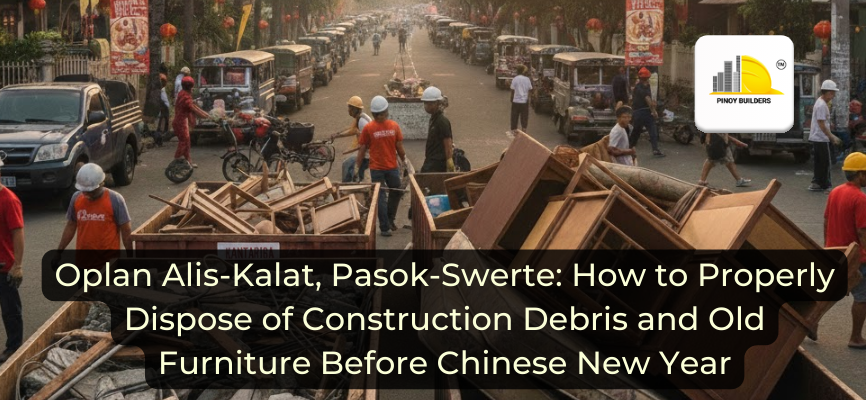Updated: November 25, 2024
Ready to feel spooked, ka-Builders?
Celebrating Halloween and observing Undas is the perfect time to uncover the hidden, eerie charm of some of the Philippines’ most hauntingly beautiful structures. Each building features stunning architecture that tells a story—a blend of history and mystery woven into its walls, halls, and hidden corners. From Spanish-era mansions to century-old churches, these architectural marvels serve as timeless reminders of the past, adorned with beauty and whispers of ghostly legends.
In this article, we will explore thirteen remarkable structures across the country, highlighting their architectural brilliance while delving into the eerie tales that have made them legendary.
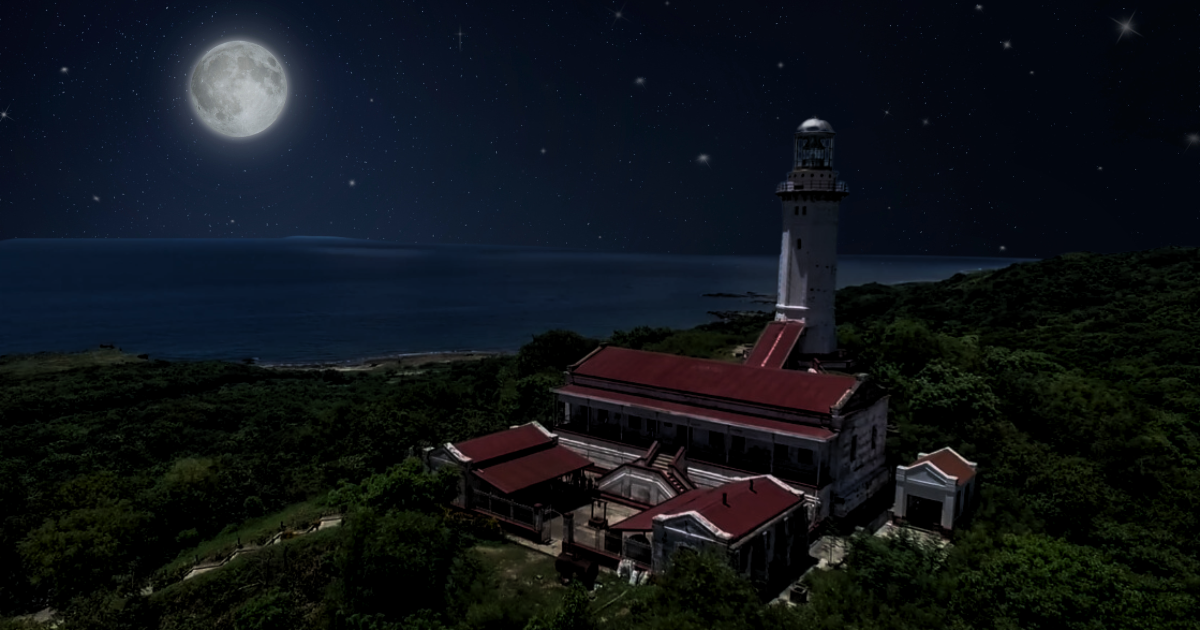
Pictured: Cape Bojeador Lighthouse
13 Hauntingly Beautiful Structures in the Philippines and Their Chilling Tales
1. Saint Joseph the Patriarch Parish Church (Mabolo, Cebu)
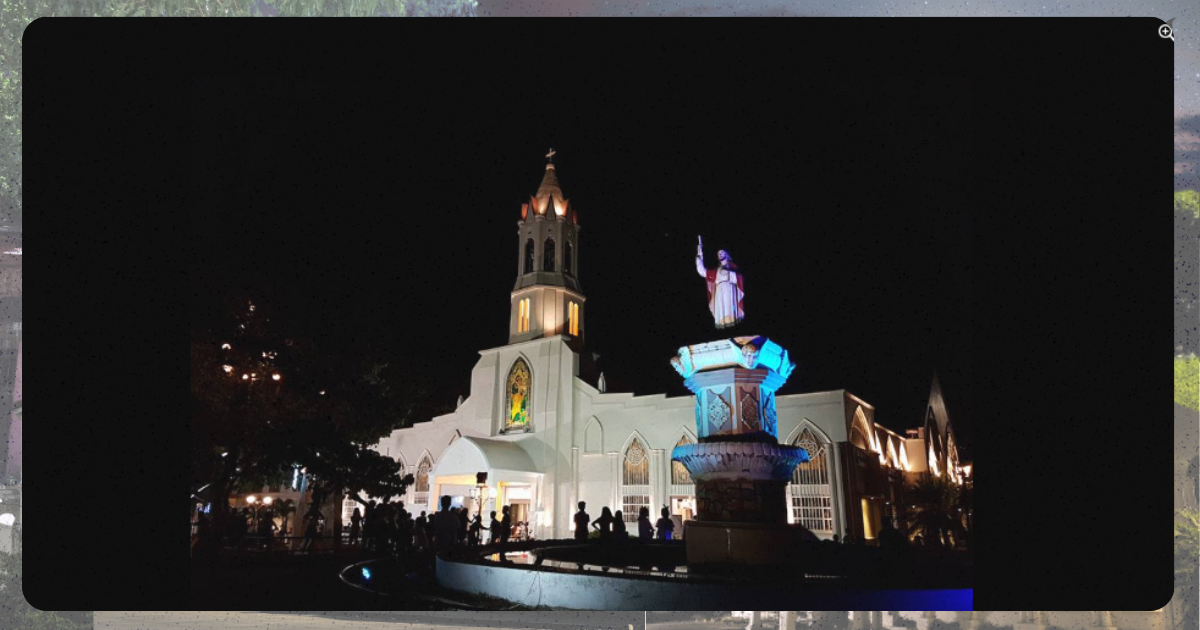
Image from St. Joseph Parish Church, Mabolo
The Saint Joseph the Patriarch Parish Church in Mabolo features elements of both Baroque and Neo-Gothic architectural styles, characterized by its pointed arches, detailed stained glass windows, and intricate spires. Established in the late mid-18th century, this church has become a cornerstone of the local community, providing spiritual guidance and solace.
But it’s not just its beauty that captivates visitors; the church is steeped in eerie tales. Locals have reported sightings of a mysterious dark-hooded figure roaming the church, and there have been unsettling poltergeist activities that leave many feeling a chill.
2. Compañia Maritima (South Road Properties of Cebu City)
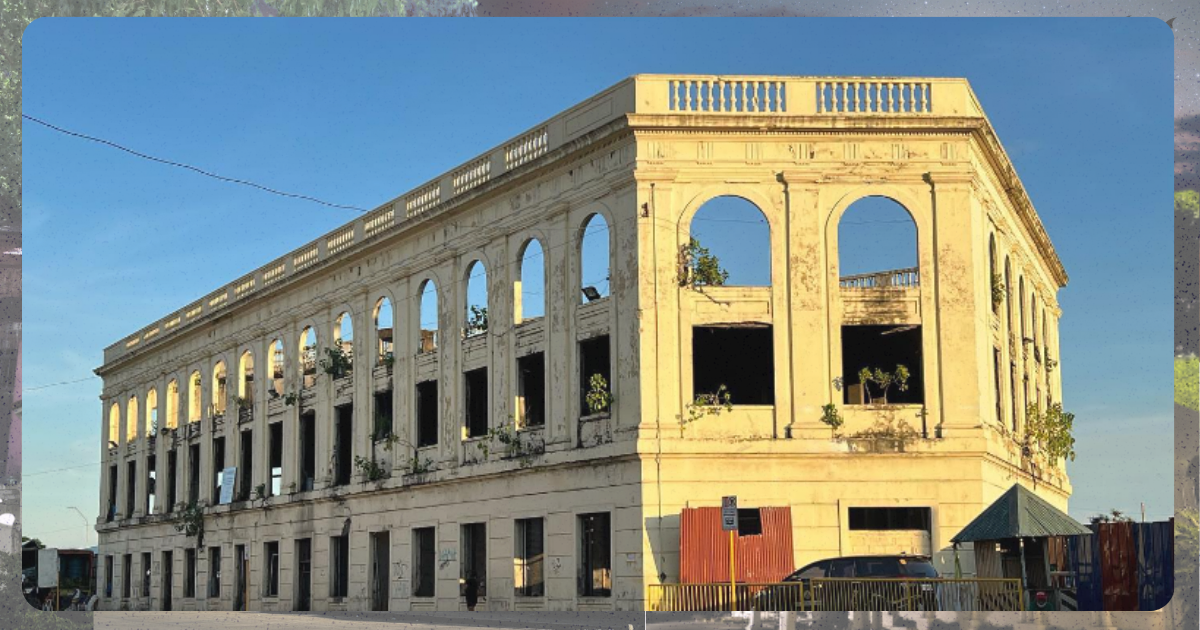
Image from Cebu ni bai
Compañia Maritima in Cebu City stands as a testament to early 20th-century architecture, featuring elegant arches and decorative elements that speak to its maritime significance This now-imposing abandoned structure once served as a vital hub for shipping called the Fernandez Building until financial troubles led to its decline in the 1980s.
Today, whispers of eerie sounds haunt the building, with passersby and night visitors claiming to hear voices and footsteps echoing through its empty halls, adding a mysterious allure to its historical grandeur.
3. Cape Bojeador Lighthouse (Burgos, Ilocos Norte)
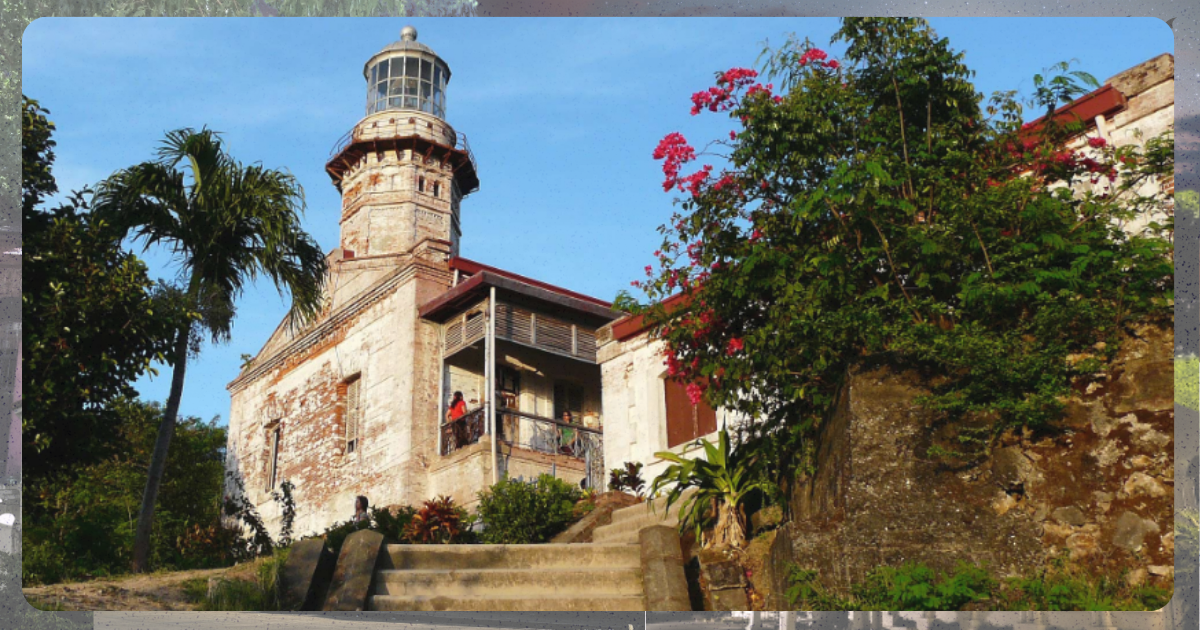
Image from Industrial Heritage in the Philippines
Perched on a rugged cliff, the Cape Bojeador Lighthouse is not just a stunning sight; it’s a piece of history. Built in the late 19th century, this architectural gem was part of Spain’s effort to light up the Philippine archipelago.
Originally designed by Magin Pers y Pers in 1887, it was completed by Guillermo Brockman’s Lighthouse Service. Standing around 65 feet tall and featuring an octagonal shape, the lighthouse offers breathtaking views while guiding ships safely through the treacherous waters below.
But it’s not just the views that make this place captivating. Locals share chilling tales of a bearded figure believed to be the spirit of a worker who lost his life during the lighthouse’s construction. Many claim to have seen him wandering the grounds at night.
.
4. Villalon Mansion (Capitol Site, Cebu City)
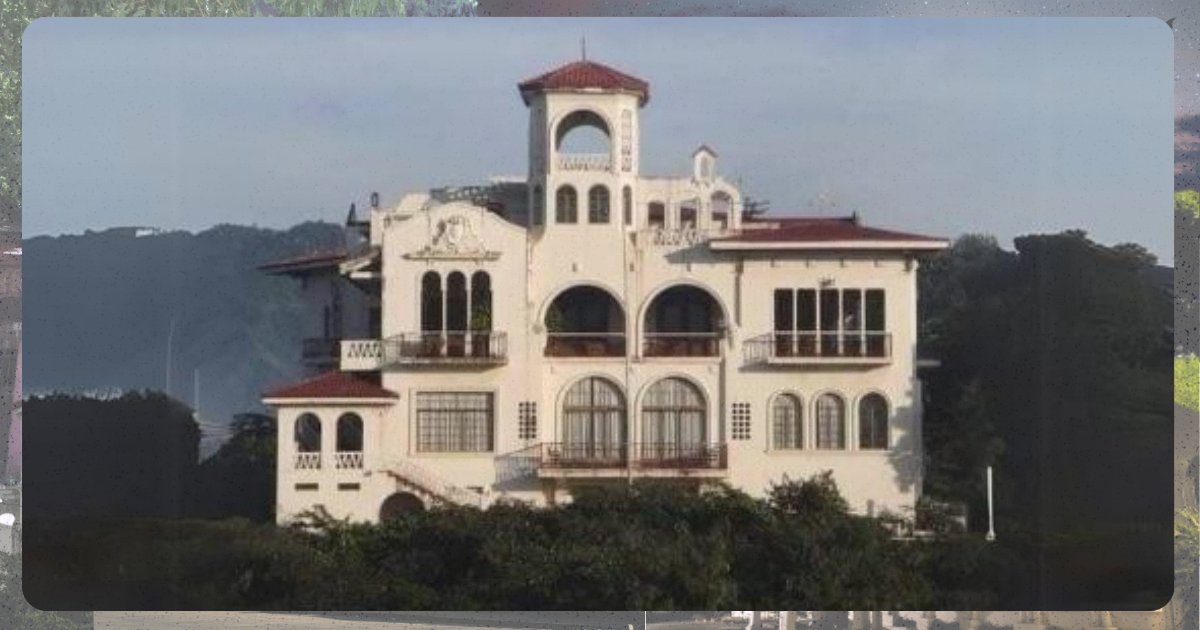
Image from Facebook/Rob Figueras
The Villalon Mansion stands out with its stunning façade and intricate architectural details, showcasing the opulence of its era. Once a lively family home, it has witnessed the passage of time and rich cultural stories.
In the 1950s and 1960s, the Villalon family threw extravagant parties that captivated the community. However, after moving abroad in the 1990s, the mansion fell into disrepair, remaining off-limits and shrouded in mystery. To this day, no one has dared to step inside and reveal the secrets hidden within its walls.
Chilling legends surround the mansion, even in its abandoned state. Locals speak of a ghostly lady who roams the halls and strange sounds that echo through the night, spooking local residents in the area and inviting adventurous tourists to visit the place.
5. Casa Mariquit (Jaro, Iloilo City)
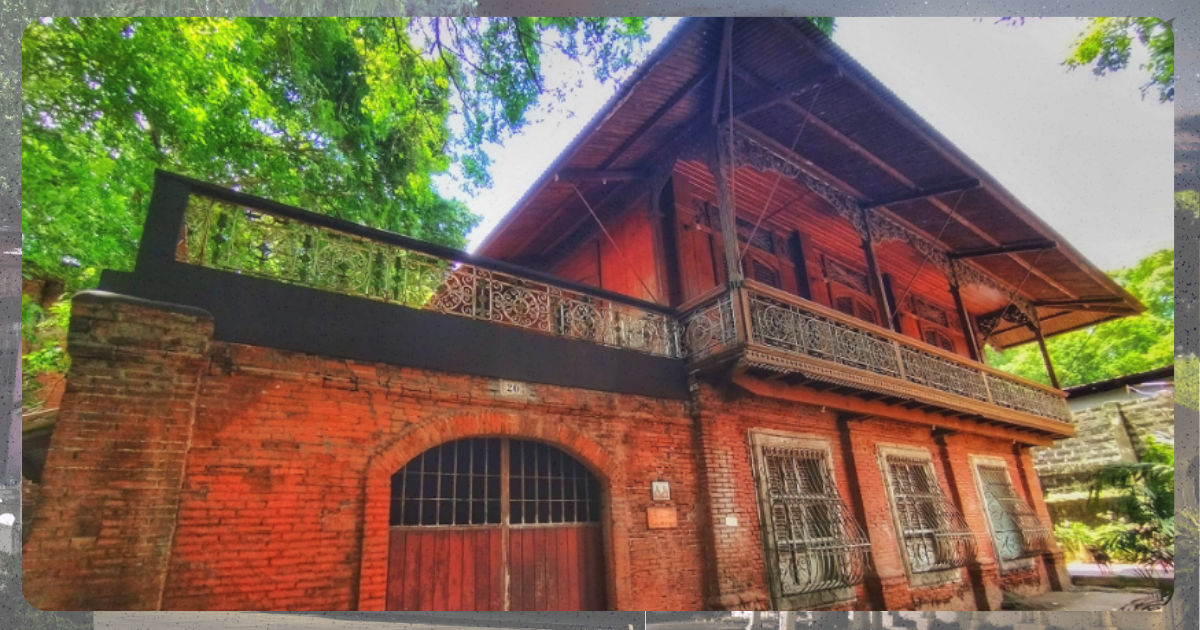
Image from Facebook/Lakwatsa Ni Tibor
Located on Santa Isabel Street in Jaro, Iloilo, Casa Mariquit stands as a testament to the area’s vibrant history. Ramon Javellana built this house 215 years ago in 1803 to serve as both a bank and a family home. The two-story structure eventually became the residence of his granddaughter, Maria “Mariquit” Javellana, and her husband, Fernando Lopez, Sr. Notably, Lopez served as Vice President of the Philippines for three terms, adding to the house’s historical significance.
The architecture of Casa Mariquit beautifully blends colonial charm with modern touches, showcasing the grandeur of its era.However, the house’s enigma extends beyond its captivating design. Local legend tells of a ghostly figure that once stirred to life on a wooden bench inside, adding an air of intrigue that draws visitors eager to uncover its secrets.
6. Pamintuan Mansion (Angeles, Pampanga)
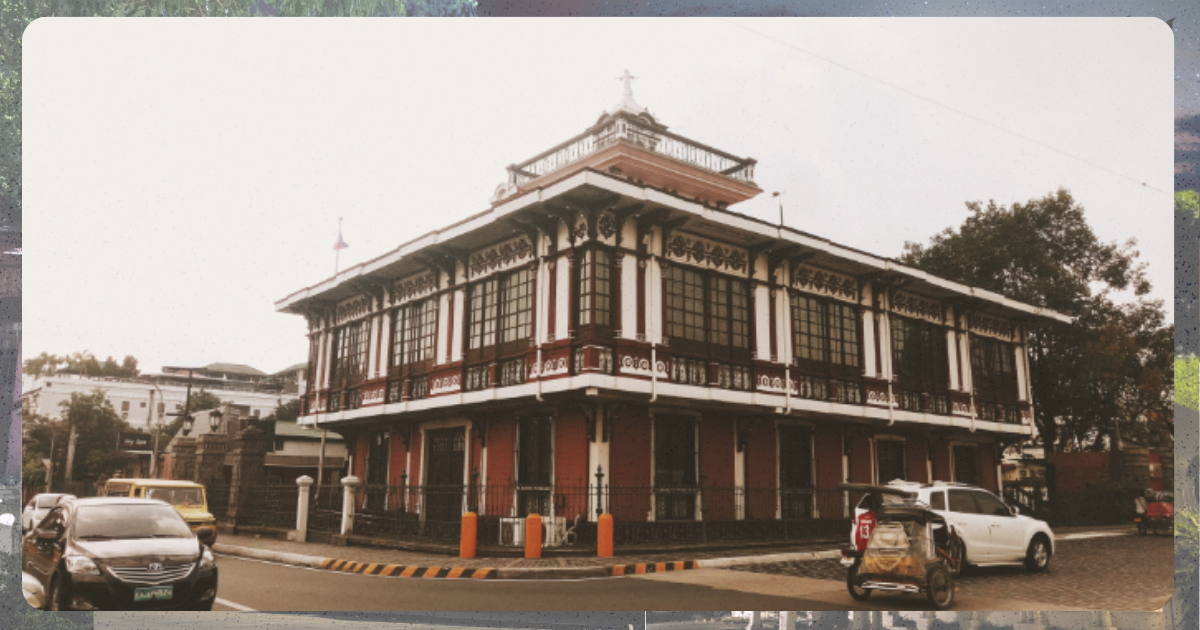
Image from WordPress/nycta{gina}ceae
The Pamintuan family constructed the Pamintuan Mansion in Angeles City, Philippines, in the 1880s. This beautiful building reflects Victorian architectural styles, boasting intricate craftsmanship and luxurious details. Throughout its history, the house has served multiple roles, including its current function as a social science museum and even a brief stint as a stronghold for the Katipunan during the Philippine-American War.
Despite its elegant exterior, the mansion has a spooky side, with stories of a young woman’s spirit lingering in the rooftop tower. Locals often share eerie tales of her soft cries echoing on the wind, adding a mysterious charm to this fascinating landmark.
7. Casa Nicolasa (San Fernando, Pampanga)
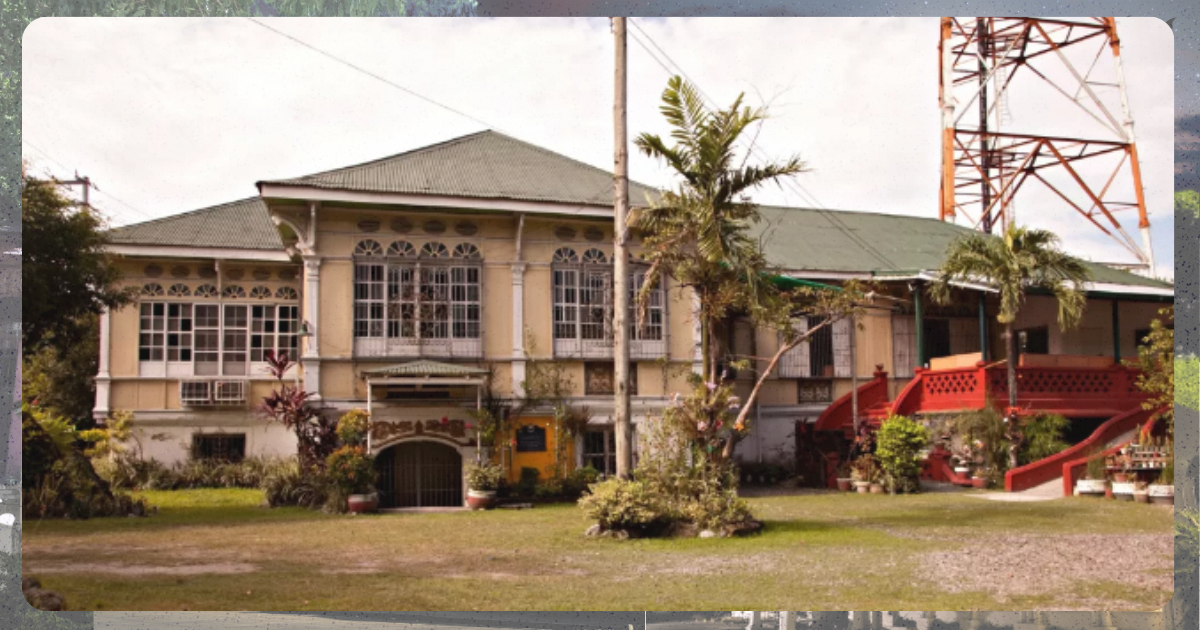
Image from Let’s Go Pampanga
Casa Nicolasa, the oldest bahay na bato in San Fernando, showcases the unique architectural style that holds immense significance in Filipino history. Built during the Spanish colonial era, it was originally owned by Gobernadorcillo Saturnino Henson Y’ David. Later, the house transformed into a refuge for injured soldiers during the Filipino-American War, thanks to Nicolasa Dayrit’s dedication.
Legend has it that both her spirit and those of the fallen soldiers still haunt the place, making it a fascinating piece of local heritage. Visitors often report eerie occurrences, like the sound of an organ playing mysteriously at night and glimpses of Doña Nicolasa appearing at the window.
8. Las Casas Filipinas de Acuzar (Bagac, Bataan)
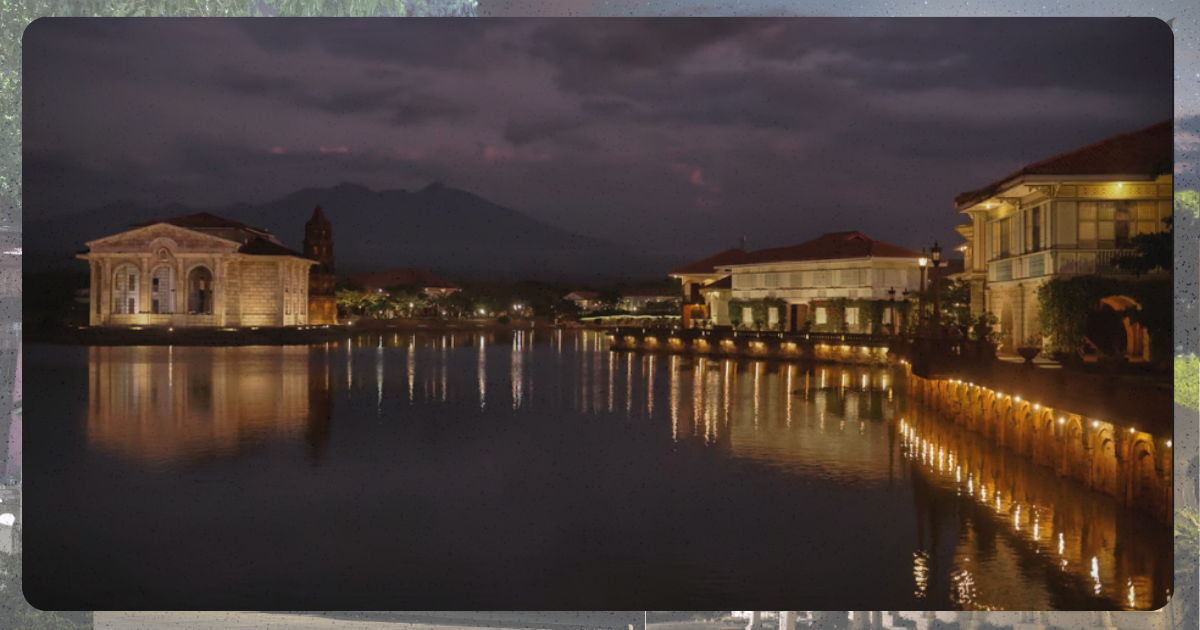
Image from Las Casas Filipinas de Acuzar
Las Casas Filipinas de Acuzar is a vibrant collection of Spanish-era buildings that invites visitors to explore the country’s colonial history. Opened to the public in 2010, this site showcases stunning architecture inspired by Spanish colonial design.
Apart from the luxurious atmosphere of the resort, many guests also find themselves captivated by the intriguing stories behind each structure. Some even report spooky encounters, such as phantom knocks and flickering lights, which add an enchanting twist to the historical experience.
9. Bale Kastila (Floridablanca, Pampanga)
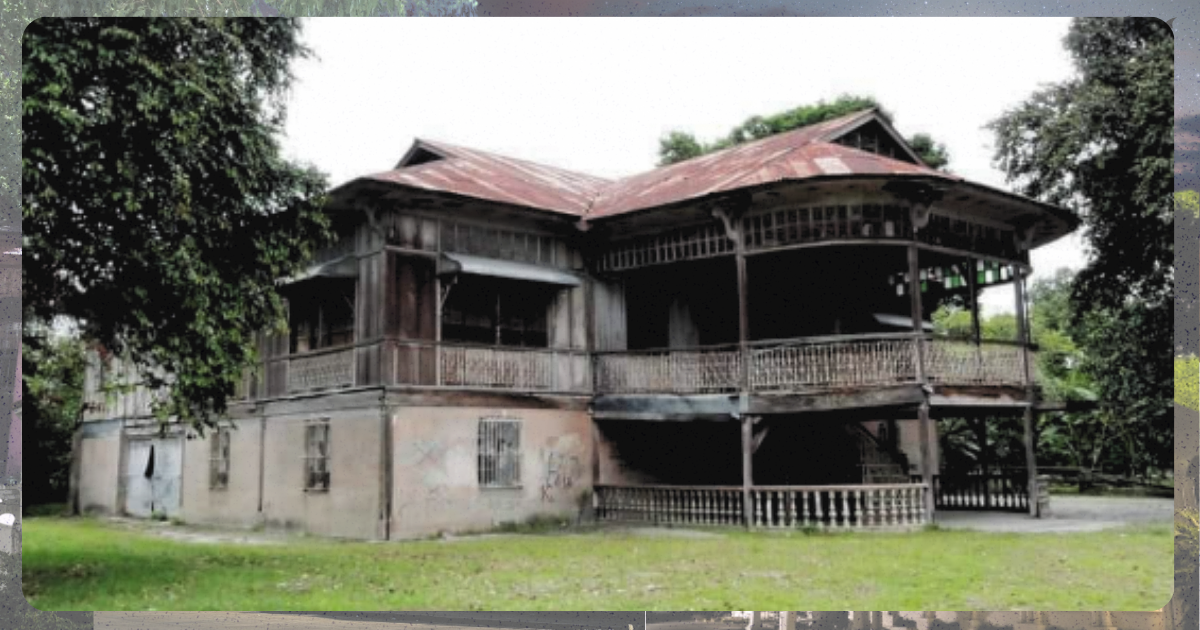
Image from Facebook/Bale Kastila – Paguiruan
Bale Kastila is considered the oldest house in Floridablanca, Pampanga, and showcases the rich architectural history of the area. Built during the Spanish colonial period, this two-story structure features elegant designs, including a wide balcony, interconnected rooms, and a charming dining area on the second floor. Despite its abandonment, it stands tall on a clearing facing the river, a testament to its historical significance in the local community.
However, rumors of haunting this iconic house go beyond its beauty. Locals frequently report sightings of an old woman on the balcony, and strange sounds echo through the area, adding a mysterious twist to Bale Kastila’s already fascinating story.
10. Old Provincial Capitol Building (Tagbilaran, Bohol)
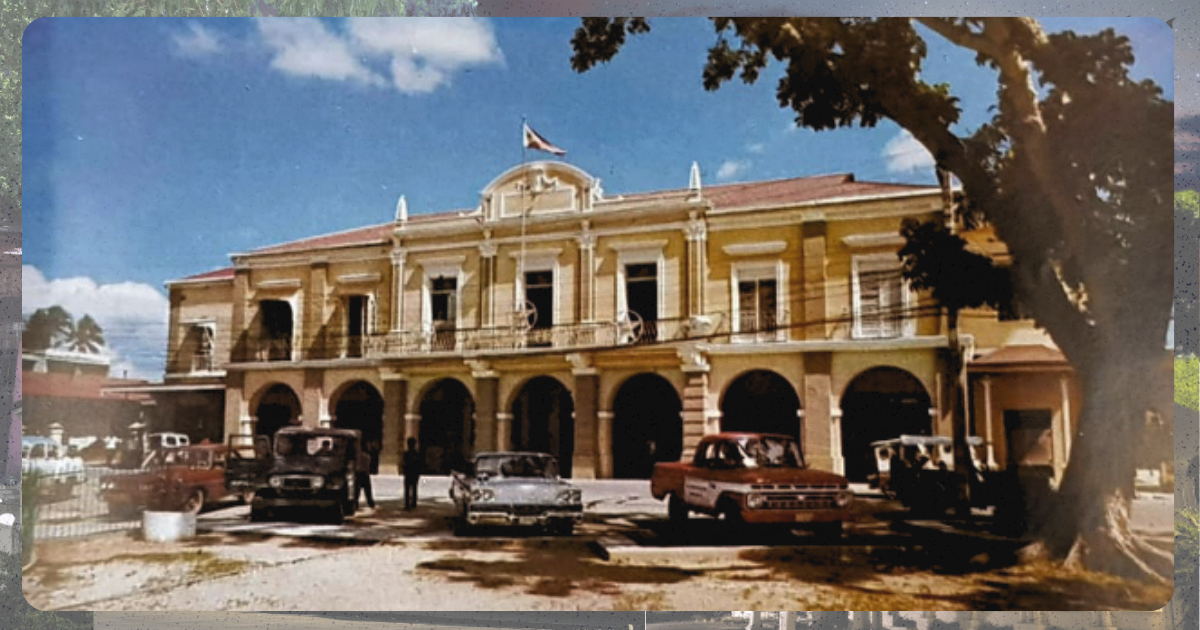
Image from Facebook/Arkitektura ng Bayan
The old Provincial Capitol Building in Tagbilaran City, now the National Museum of the Philippines—Bohol Area Museum (NMP—Bohol), is a structure with deep historical roots dating back to the Spanish colonial era.
Originally serving as a tribunal, prison, and military quarters, the National Museum of the Philippines recognized this significant site, originally serving as a tribunal, prison, and military quarters, as an Important Cultural Property on July 22, 2012. The Provincial Government of Bohol donated the building after it sustained damage from the 7.2 magnitude earthquake in 2013, and it underwent repairs before officially reopening as the National Museum Bohol on July 22, 2018.
Beyond its impressive neoclassical architecture, the building holds a unique charm due to its historical role during World War II. Local legends even speak of headless ghosts roaming the grounds, adding to the intriguing aura of this landmark.
11. Herrera Mansion (Tiaong, Quezon)
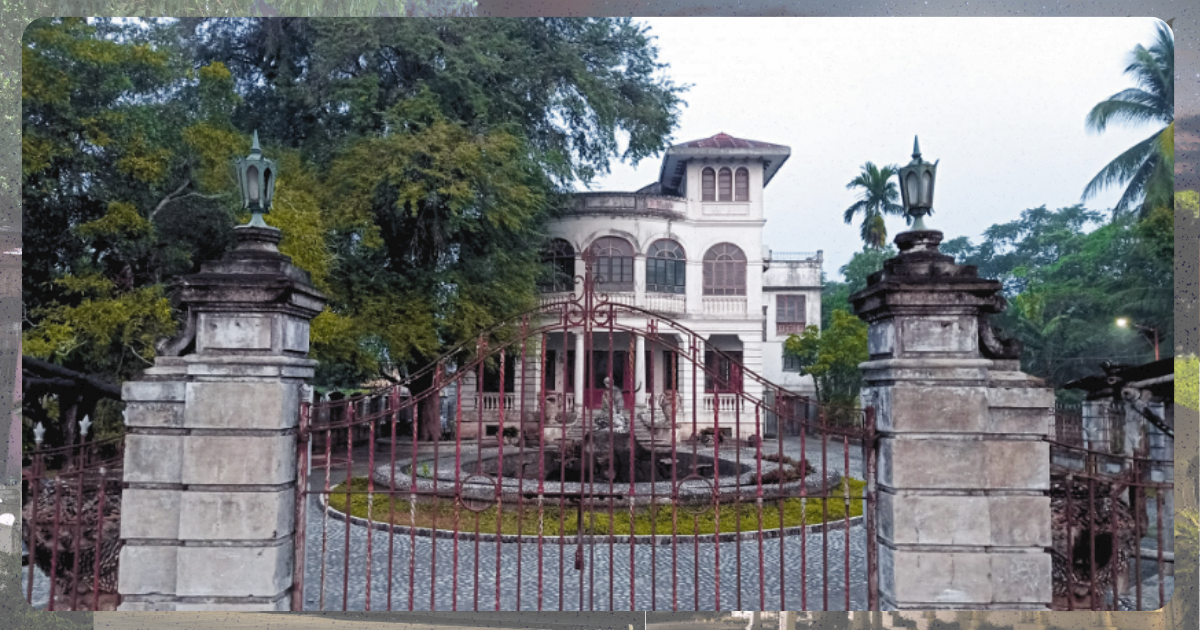
Image from Paranormal Forensics
The Herrera Mansion, crafted by famous Filipino architect Tomás Mapúa in the 1920s, is the oldest stone house in Tiaong, Quezon. Once a symbol of grandeur, it now shows signs of neglect, with its rich history overshadowed by decay. Despite this, the mansion still captivates with its stunning architecture and the remnants of its former glory.
Adding to its allure are the eerie ghost stories from the Japanese occupation. Locals report sightings of a ghostly elderly couple wandering the grounds, along with strange sounds like rattling doorknobs and chains dragging across the floor. These tales bring an intriguing, spooky vibe to the already beautiful structure.
12. Don Roman Santos House (Antipolo)
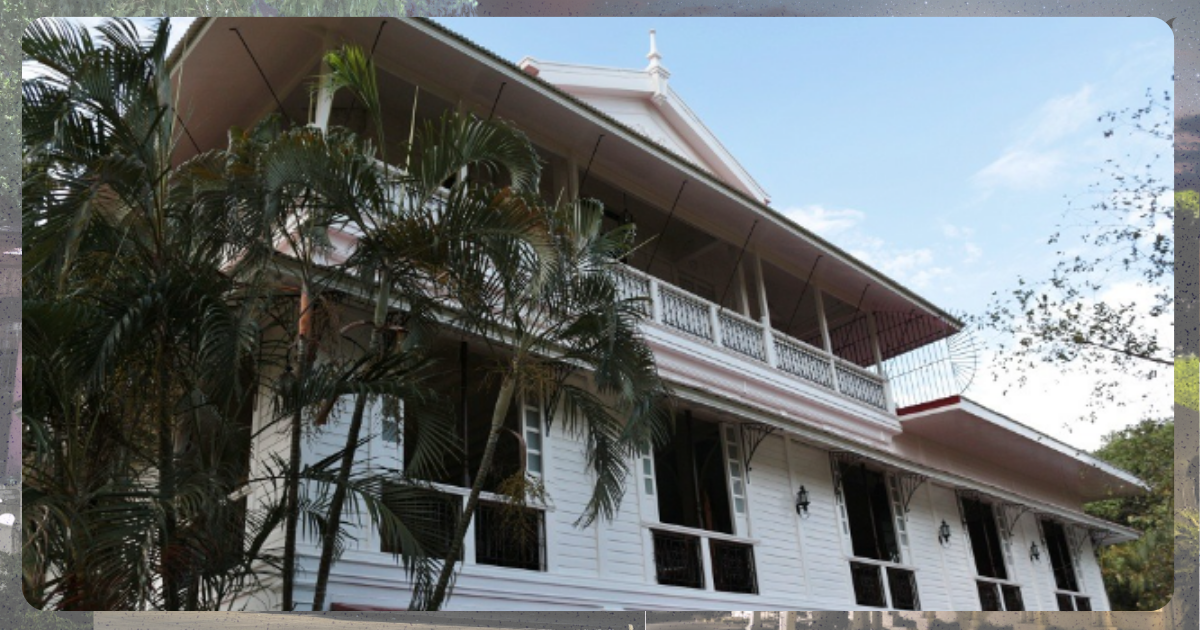
Image from Navotas City Library
Originally built in 1917 by his family in Navotas, Don Roman Santos’s heirs thoughtfully relocated the historical home to Antipolo City to preserve its historical significance. This beautifully preserved house showcases its unique architectural style and serves as a lasting tribute to the past.
While it’s a stunning representation of heritage, some visitors can’t shake off the eerie tales of an elderly woman said to linger in one of the bedrooms. These stories add a mysterious layer to the house, blending its rich history with a touch of the supernatural.
13. The Carcar City Museum (Cebu)
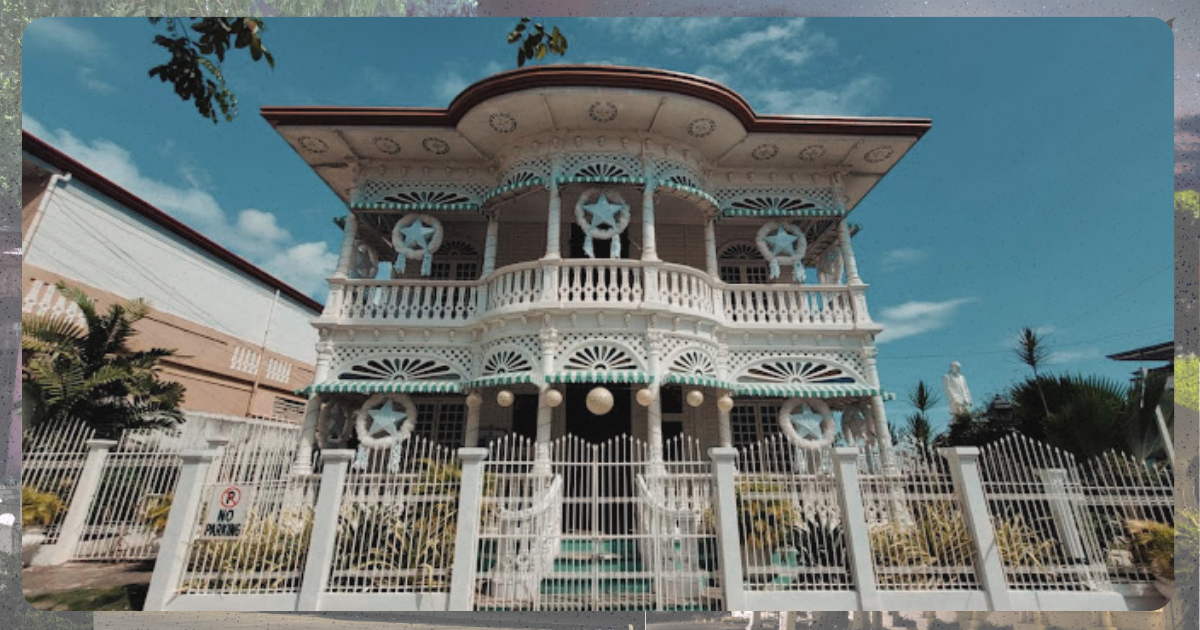
Image from Cebu Provincial Tourism Office
The Carcar City Museum is a perfect example of American-era civic architecture in the Philippines, featuring an impressive façade and vintage design that reflect its storied past. Mayor Mariano Mercado initiated construction in 1929, and his wife Flora Base Mercado, along with Governor Sotero Cabahug, officially inaugurated it in 1937. Its colonial-inspired design showcases wide staircases, high ceilings, and wooden interiors, all of which beautifully capture the building’s 1929 roots.
Apart from being a well-known historical museum, the site is also known for its spooky reputation. The historical landmark exudes an intriguing aura of mystery, as both staff and guests have reported chilling experiences such as sudden cold drafts and the eerie feeling of being watched while alone.
Hauntingly Beautiful Structures in the Philippines
The Philippines is home to some of the most breathtaking architectural gems, each telling a story that goes beyond its stunning design. These structures aren’t just pretty to look at; they are steeped in rich history and intriguing legends that add an extra layer of mystique. If you have a passion for history or a curiosity about the supernatural, these sites will draw you in and make you want to explore their captivating pasts.
As you plan your visits, keep in mind the importance of approaching these locations with respect. The tales woven into their histories are essential to understanding their cultural significance. Honoring these sites ensures their appreciation for the stories they tell, not just as ghostly hotspots.
References:
A, T. (n.d.). THE CARCAR DISPENSARY MUSEUM (2024) All You Need to Know BEFORE You Go (with Photos). Tripadvisor. Retrieved October 31, 2024, from https://www.tripadvisor.com.ph/Attraction_Review-g1061552-d3841025-Reviews-The_Carcar_Dispensary_Museum-Carcar_Cebu_Island_Visayas.html
Duo Lens Project. (2019, October 29). The Villalon Mansion in Cebu. Duo Lens Project. Retrieved October 31, 2024, from https://duolensproject.com/villalon-mansion/
Guide to the Philippines. (n.d.). Information about National Museum Tagbilaran. Guide to the Philippines. Retrieved October 31, 2024, from https://guidetothephilippines.ph/destinations-and-attractions/national-museum-tagbilaran
IALA Heritage. (n.d.). Cape Bojeador Lighthouse – IALA Heritage. IALA Heritage. Retrieved October 31, 2024, from https://heritage.iala-aism.org/lighthouses/cape-bojeador-lighthouse/
Let’s Go Pampanga. (n.d.). Spooky Tour: Unravel The Haunting Mysteries of Pampanga. Let’s Go Pampanga. https://www.letsgopampanga.com/spooky-tour-pampanga-visit-dare-2299/
Lim, R. L. (2020, August 31). 5 Haunted Places to Visit When in Pampanga LUZON TRANSIT PINAS. transit pinas. Retrieved October 31, 2024, from https://transitpinas.com/5-haunted-pampanga/
National Museum. (n.d.). Bohol – National Museum. National Museum. Retrieved October 31, 2024, from https://www.nationalmuseum.gov.ph/our-museums/regional-area-and-site-museums/bohol/
nycta{gina}ceae. (n.d.). nycta{gina}ceae. WordPress. https://bewithgina.wordpress.com/2018/10/02/a-touch-of-history-at-pamintuan-mansion-and-best-tasting-sisig-at-aling-lucings-from-angeles-pampanga-august-travel-pampanga/
Steemit. (n.d.). HAUNTED MANSION — Steemit. Steemit. Retrieved October 31, 2024, from https://steemit.com/story/@libreotipid/haunted-mansion
Wikipedia. (n.d.). Compañía Marítima Building. Wikipedia. Retrieved October 31, 2024, from https://en.wikipedia.org/wiki/Compa%C3%B1%C3%ADa_Mar%C3%ADtima_Building
Wikipedia. (n.d.). Las Casas Filipinas de Acuzar. Wikipedia. Retrieved October 31, 2024, from https://en.wikipedia.org/wiki/Las_Casas_Filipinas_de_Acuzar
Worldwanderings.net. (2009, July 31). St. Joseph’s Church in Mabolo. Worldwanderings.net. Retrieved October 31, 2024, from https://www.worldwanderings.net/2009/07/31/st-josephs-church-in-mabolo/


